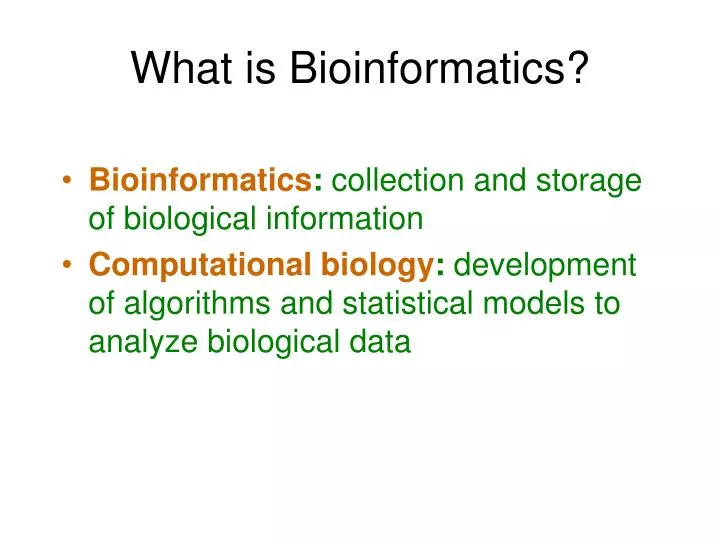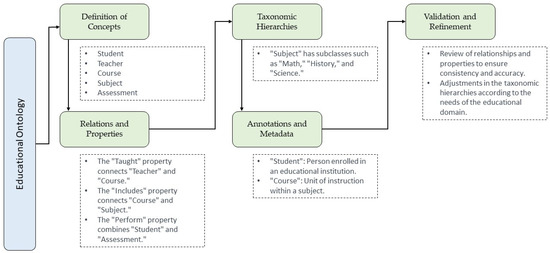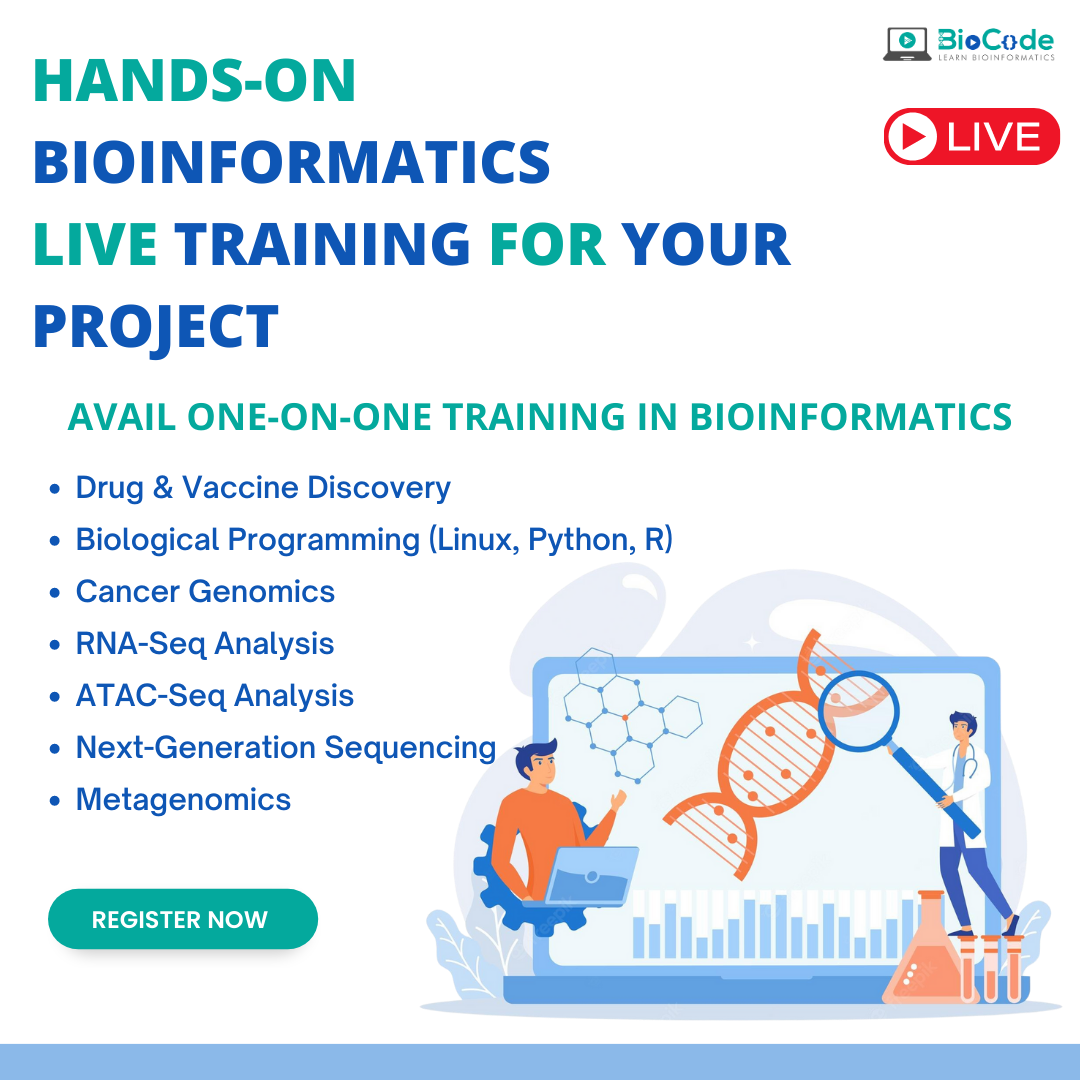The smart Trick of Bioinformatics Tutor That Nobody is Talking About
The smart Trick of Bioinformatics Tutor That Nobody is Talking About
Blog Article
The Best Guide To Bioinformatics Tutor
Table of ContentsThe Facts About Bioinformatics Tutor RevealedNot known Details About Bioinformatics Tutor 3 Simple Techniques For Bioinformatics TutorSome Known Factual Statements About Bioinformatics Tutor The Of Bioinformatics Tutor
Of the overall individuals included in the training, 80% were students from public higher education and learning institutions, while the staying 20% originated from personal establishments. To get approved for a certificate of participation, trainees were called for to attend at the very least 90% of the total training hours. As an outcome of this need, an impressive 95% of the individuals efficiently gotten their certificates, having not just met the minimum participation requirements however likewise finished all designated activities throughout the training.
During the elevation of the COVID-19 pandemic, especially between June and August 2020, the project team was charged with organizing specialized training in bioinformatics. This training was especially intended at students from the research study team Center for Research study in Applied Computing at the Federal University of Pará (UFRA) The adjustment to remote knowing platforms because of the pandemic created a chance to discover brand-new teaching approaches and digital tools that boosted both reach and effectiveness.
This program was developed to provide an obtainable yet extensive review of Artificial Knowledge techniques, especially as applied in bioinformatics (Bioinformatics Tutor). This online format enabled involvement from students across Brazil, several of whom could not have had the chance to participate in in-person sessions.
How Bioinformatics Tutor can Save You Time, Stress, and Money.
About 50% of the complete training hours were devoted to functional activities where trainees constructed intelligent designs and applications in a range of clinical domain names, consisting of genes, molecular biology, and environmental information evaluation. These systems enabled students to involve in real-time information adjustment, version training, and algorithm trial and error.
The training course attracted 80 participants in total. Sixty of them were affiliated with numerous college organizations in the state of Pará, while the continuing to be twenty came from institutions found in five other Brazilian states. This broad geographical depiction highlighted the national interest in bioinformatics and the expanding demand for specialized skills in this field. By introducing Expert system in a appropriate and functional context, the campaign served to bridge the space in between concept and real-world application, supplying students with a solid structure for future study or work in the area.
The training campaign formed part of a broader academic outreach effort called the Bioinformatics on the Roadway project. This project has, throughout the years, presented lots of students to the world of bioinformatics and computational biology. The events held under this umbrella initiative have actually happened throughout numerous areas and years, as summarized in Table 1 (List of occasions, locations, years, and overall numbers of pupils and trainers)
Among one of the most amazing outcomes of the Bioinformatics when traveling campaign has actually been its contribution to the growth of decentralized research study groups. Numerous of these teams, initially combined by their involvement in training events, have given that taken place to produce independent clinical research study in partnership with regional academic institutions. The training her latest blog not just promoted scientific reasoning within the context of bioinformatics yet likewise sparked collaborative partnerships that extended past the training atmosphere. These partnerships have actually resulted in enhanced local scientific efficiency and added meaningfully to the growth of the more comprehensive bioinformatics neighborhood in Brazil.
The Main Principles Of Bioinformatics Tutor
The task itself was conceived and organized by MB and RR, that oversaw the preparation and application of each action. Lectures were delivered by a multidisciplinary group being composed of MB, FA, EF, KP, JS, DM, SN, LP, LG, IH, rr, and air conditioning. The exact same team, leaving out IH and RR, additionally served as tutors for the practical training components. Financing for the task was provided via the give 88887.200562/ 2018-00 from CAPES. The authors prolong their appreciation to everyone who added to the understanding of this project, whether directly or indirectly, because its inception.
The Federal University of Pará's Office of Study (PROPESP/UFPA) also supplied financial backing, particularly for the manufacturing of the last manuscript. The authors declare no monetary or business problems of rate of interest that might have influenced the research. Furthermore, all viewpoints and analyses shared in this write-up are exclusively those of the writers and do not necessarily show those of their particular establishments, the author, editors, or reviewers associated with the magazine process.

Bioinformatics Tutor for Dummies
From an instructional perspective, the training method utilized in the training was intentionally interactive. Courses were conducted in a manner that published here encouraged trainee involvement and discussion, exceeding rote memorization to explore how concepts are created, used in every day life, and examined in academic settings. The instructional ideology focused on supporting both strong and having a hard time pupils, supplying customized support, and building confidence with sustained mentorship and persistence.

Each group, containing around 36 participants, was supported by three advisors-- many of whom were postdoctoral scientists with specific expertise. These coaches not just helped develop the team tasks but also facilitated their execution, guaranteeing that each research concern was both properly tough and relevant. The goal was to supply a biologically sensible context that participants could check out with open-ended purposes and access to curated datasets.
For added understandings right into the approach and results of this project-based knowing strategy, visitors are directed to S1 Text, which includes detailed descriptions of the instructional structure, evaluation techniques, and job styles used in the training sessions.
Little Known Questions About Bioinformatics Tutor.
Of the total participants included in the training, 80% Full Article were pupils from public greater education establishments, while the staying 20% came from private organizations. To certify for a certificate of involvement, pupils were required to go to at least 90% of the overall training hours. Especially, past the students who enlisted in the training sessions, seven seasoned teachers got involved in supplying the training courses, while three dedicated research study professors worked with the general training process. Approximately 50% of the overall training hours were committed to useful tasks where students built intelligent designs and applications in an array of clinical domains, including genes, molecular biology, and environmental information analysis. The training not just fostered scientific reasoning within the context of bioinformatics but additionally stimulated collaborative connections that expanded past the training atmosphere.
Report this page